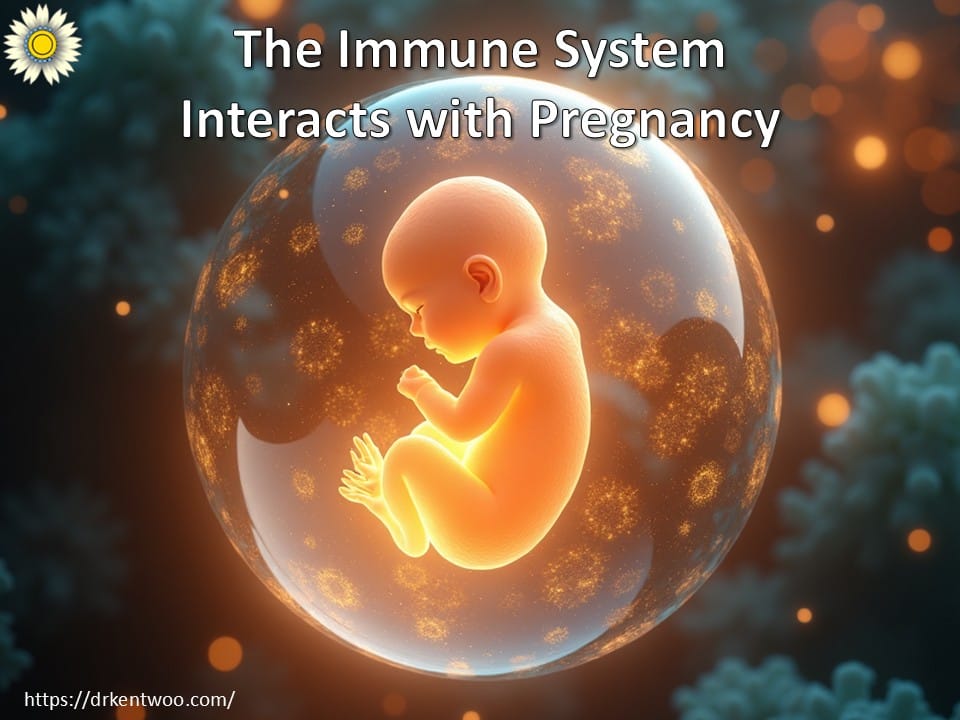Reproductive Immunology and Fertility

If you’ve been struggling to get pregnant, it can be a deeply stressful experience.
There’s self-doubt. Blame. Sometimes even guilt.
Over the years, a few patients have come to see me — not for allergies, but asking about their NK cells, or whether their immune system might be the reason they can’t stay pregnant.
That’s how my journey into reproductive immunology and fertility truly began.
At that time, I’d usually tell them honestly:
“I’m not really focused on reproductive immunology — the science is still gray.”
And I’d refer them to a fertility specialist or suggest a second opinion.
Then one day, a colleague shared her own story.
She had gone through years of fertility struggles — until she sought help from a reproductive immunologist.
Today, she’s a proud mother of three daughters — all grown up and thriving.
She told me, “There’s something to this!”
That phrase stayed with me.
What Is Reproductive Immunology?
Reproductive immunology looks at how the immune system interacts with conception, implantation, and early pregnancy.
Sometimes, when immune activity becomes unbalanced, it may interfere with embryo development — even when everything else looks normal.
It’s about finding that fine line between immune protection and immune tolerance.
The Oven and the Cake 🍰

I like to explain that getting pregnant is like baking a cake.
The mother-to-be is the oven, and the embryo is the cake.
Of course, you’d check the oven, the ingredients, and follow the recipe.
In IVF, that recipe is carefully crafted by an expert baker — your fertility specialist.
But sometimes, even when the recipe and oven seem perfect, the cake just doesn’t bake.
Imagine being told, “Everything looks fine,” yet nothing works.
It’s heartbreaking — and confusing.
That’s when reproductive immunology steps in.
We look inside the oven.
Maybe the heating element is a little off.
Maybe the wiring or temperature control needs fine-tuning.
And sometimes, with a few careful tweaks — the oven works beautifully again.
How Reproductive Immunology Can Explain IVF Failures

A friend of mine had gone through eight rounds of IVF.
Each time — successful implantation… followed by loss within 1–2 weeks.
All her tests were normal.
Her doctors said, “Everything looks fine — just try again.”
But clearly, something wasn’t fine.
When I reviewed her case, I started thinking:
If the embryos are healthy, and implantation happens — but the pregnancy doesn’t hold — could the immune system be rejecting the fetus?
In some women, an overactive immune system may attack what it sees as “foreign” — even though it’s actually your own developing baby.
That’s where reproductive immunology offers insight and treatment options.
In her case, we used a lipid infusion to help calm an over-vigilant immune system.
Long story short — she conceived successfully, and this time, the pregnancy held.
From 2 weeks to 4 weeks to the third trimester.
She couldn’t be happier.
The Role of Testing 🔬
Reproductive immunology evaluation involves looking at how your immune system interacts with the developing embryo.
Some of the tests may include:
- Immune cell activity (such as NK cell function or cytokine balance)
- Autoantibodies that may interfere with implantation
- Inflammatory markers that reflect immune overactivation
These tests don’t diagnose infertility by themselves — but they help reveal how your immune system behaves in early pregnancy and whether it may be part of the problem.
In other words, they don’t replace fertility evaluation — they complement it, adding an immune perspective to the bigger fertility picture.
Treatment Is Never One-Size-Fits-All
Every patient’s immune system is unique.
That’s why treatment plans are individualized — guided by both test results and clinical context.
Some may benefit from immune modulation therapies, such as lipid infusions, steroids, or other targeted treatments to help the body accept and support the pregnancy.
Others may need no immune therapy at all — just careful monitoring and coordination with their fertility specialist.
So… Should You See Me First?

If you’re trying to conceive or planning IVF, the first step should always be your fertility OB/GYN specialist.
Make sure the oven structure and the cake recipe are right — that’s their area of expertise.
But if you’ve done all that and success still feels out of reach, that’s when you come to see me — for an immune evaluation.
We’ll make sure the oven is functioning as it should.
Reproductive immunology is still considered a gray zone in medicine.
If you search the guidelines, many will say, “not enough evidence.”
And that’s true — research is still evolving.
But gray zones are where careful guidance matters most.
That’s why I work closely with your fertility specialist to navigate reproductive immunology and your fertility together — to help you conceive, carry, and deliver a healthy baby.
If you’re based in Kuala Lumpur and exploring whether immune factors could be affecting your fertility, The Allergy Immunology Clinic offers comprehensive reproductive immunology evaluations in collaboration with your fertility specialist.
Because sometimes, all the oven needs… is a little fine-tuning. 🧡




